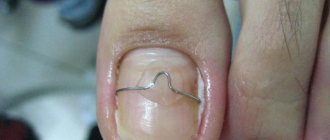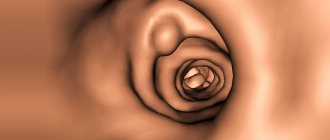Runny nose, itching, hives, swelling, headache and conjunctivitis are not all the symptoms that are observed during allergies. The cause of an allergic reaction can be food, pollen, dust, mold, or animal dander. Allergy symptoms can be caused by various substances, even simple water.
In different countries, the frequency and manifestation of the disease vary dramatically due to the peculiarities of the climatic conditions of the region, the environment, traditions and habits of local residents. The disease can appear at any age, and anything can trigger its appearance.
Arrives on schedule
Photo: depositphotos/serezniy
Seasonal allergies usually occur to pollen or fungal spores. According to Mukhina, doctors distinguish three main seasons: from March to May, when the trees bloom; June and July – cereal grasses; September – weeds.
“If we talk about fungal allergies, then sporulation occurs in early spring, when the first snow melts, and during the period of leaf decay - in wet and cool autumn,” the doctor explained.
However, according to statistics, pollen allergy is the most common among others: it is detected in 30–75% of patients. Moreover, according to Mukhina, such people are often sensitive to several allergens at once.
Classification of antihistamines
According to the classification adopted by EAACI (European Academy of Allergy and Clinical Immunology), there are 2 generations of antihistamines*.
Antihistamines (AGDs) 1st generation
1st generation drugs were developed in the middle of the last century, but some are still used today. They have many side effects: they cause drowsiness, can have a negative effect on the gastrointestinal tract, cardiovascular system, vision, and cause dryness of the mucous membranes of the respiratory tract. Such drugs must be taken several times a day, which is very inconvenient. And with prolonged use they become addictive*.
Antihistamines of the 2nd or latest generation
2nd generation drugs are more modern drugs. In terms of safety and ease of use, they are superior to drugs of the previous generation. They do not cause drowsiness, a person maintains concentration and attention. The absence of sedation is especially important for people who spend a lot of time driving a car or working with equipment.
These drugs have a precisely selective effect only on H1-histamine receptors, do not block other types of receptors, and therefore are devoid of most of the side effects of 1st generation AGPs. They can be used for most concomitant diseases, which is very important, since allergies as the only problem are very rare. The effect of the latest generation of allergy medications lasts more than 24 hours, which is very convenient and allows you to take a tablet only once a day. In this case, there is no need to adjust to meals, because the absorption of modern drugs usually does not depend on the presence of contents in the stomach. In addition, drugs in this group are not addictive.
2nd generation AGPs are also a heterogeneous group. There are two subgroups:
- metabolized drugs that have a therapeutic effect only after transformation in the liver (loratadine, ebastine, rupatadine);
- active metabolites - the latest generation of allergy medications that enter the body in the form of an active substance (cetirizine, levocetirizine, desloratadine, fexofenadine).
The main advantages of active metabolites are a faster and more predictable effect, no additional burden on the liver, and the ability to be taken together with other medications that also pass through the liver.
In some classifications, active metabolites are even classified as 3rd generation antihistamines, which, however, contradicts the generally accepted classification.*
The 2nd generation AGP, active metabolites, includes Cetrin®.
Mast cell membrane stabilizers are used in the treatment of upper and lower respiratory tract allergies. They inhibit the release of histamine and other active substances from mast cells, preventing the exacerbation of allergic diseases, such as bronchial asthma.
Glucocorticosteroids (GCS) are used for various allergic diseases. They have a pronounced antiallergic effect, simultaneously affecting the majority of cells involved in the allergic process. This group of drugs can be prescribed for allergic rhinitis in the form of a spray, for bronchial asthma in the form of inhalers, for atopic dermatitis in the form of ointments or creams. In especially severe cases, tablets and injectable corticosteroids are added to these forms.
Symptomatic therapy is also widely used in the treatment of allergies. For example, with bronchial asthma you cannot do without bronchodilators, and with allergic rhinitis - without vasoconstrictor drugs against allergies, etc. It is important to remember that each person is individual, has his own severity of symptoms and severity of the disease, so only a specialist can select those drugs and that treatment regimen that is suitable in each specific case.
How is it different from a cold?
Allergies and colds have a number of similar symptoms, such as runny nose, sneezing, nasal congestion, so it is not always easy to distinguish them, the doctor explained.
With allergies, itching of the eyelids and lacrimation are often associated, and with colds, there is an increase in body temperature, intoxication, an increase in symptoms, and a change in the nature of nasal discharge. Olga Mukhina
allergist
Mukhina emphasized that with an allergy to flowering, there is an increase in symptoms while being outside, and relief occurs, for example, during rain.
Types of allergies and methods of control
There are many types of allergies of different nature. The most common symptoms include nasal congestion, skin inflammation, and red eyes. However, less familiar symptoms may also appear.
For example, allergic swelling of the eustachian tube causes congestion in the ears and impairs hearing. As a result of swelling of the respiratory system, shortness of breath occurs. Eczema is quite difficult to treat and is often also a manifestation of an allergic disease.
One of the simple and affordable ways to treat allergies at home is to take antiallergic medications for 4-5 days. During the indicated period, it is worth monitoring your general well-being and pronounced symptoms. If their indicators decline, then the course of therapy has been chosen correctly.
Prepare for the season
Photo: depositphotos/IgorVetushko
Allergies can be prevented, the doctor said. She explained that allergen-specific immunotherapy will help with this: the patient is given the desired allergen in microdoses before the start of the flowering season.
“They exist in several forms: injectable or sublingual, when drops are dripped under the tongue. And the treatment of this seasonal allergy and preparation for it begin in the winter, so that in the spring the patient does not react to these allergens as much,” said Mukhina.
The second type of treatment is symptomatic. With it, patients, approximately two weeks before the start of flowering of causally significant plants, begin to use antihistamines and nasal sprays to prepare the mucous membrane for possible reactions.
Skin care for seborrheic dermatitis
If with atopic dermatitis the skin dries and cracks, then with seborrheic dermatitis it begins to become shiny, and oily scales may appear on it. In children under 3 years of age, the disease usually appears on the top of the head. Skin care for seborrheic dermatitis in this case comes down to the use of special shampoos prescribed by a dermatologist. It is important to stop the itching, because a child can scratch the affected area and accidentally cause an infection.
For seborrheic dermatitis, agents that reduce skin inflammation are used: keratolytics, corticosteroids, antifungals.
They should only be used as prescribed by a doctor. If seborrhea has become chronic, a dermatologist may prescribe oral antifungal medications. March 24, 2021
Author of the article: dermatologist Mak Vladimir Fedorovich
Useful habits
Patients with pollen allergies are advised to wear medical or gauze masks and sunglasses while outdoors, the doctor said.
“And when you come home, it’s better to immediately take off the clothes you wore outside, wash your face and, if possible, take a shower. It is advisable to wash your hair to get rid of particles that could get on it,” recommended Mukhina.
However, according to the expert, air purifiers can be used at home. All these methods will help reduce the adverse effects of pollen, the interlocutor of Moscow 24 emphasized.
What can a household allergy lead to?
With constant irritation of the skin by allergens, eczema can develop, and allergic inflammation of the mucous membrane of the eyes can aggravate the inflammation of the cornea and other tissues of the eyeball.
Due to constant irritation by dust allergens, the nasal mucosa thickens, polypous growths occur and external respiration is impaired. In children, this can lead to academic failure and even mental retardation.
Bronchial asthma can be complicated by an asthmatic condition - this is the name for an attack of suffocation as a result of prolonged narrowing of the bronchi in response to the intake of an allergen.
Anaphylaxis, a violent allergic reaction of the body, also poses a threat to life. Of course, we should not forget that dust is not only an allergen, but also a substance that provokes malignant processes - for example, lung cancer. Scientists believe that the high incidence of this disease is associated not only with the large number of smokers, but also with the degree of air pollution from exhaust gases, industrial waste and substances formed during the decomposition of garbage. Remember, dust is serious!
Do allergy sufferers get sick more often?
A person with an allergy may have problems with immunity, the doctor said. “They get sick more often, because in a person who has an allergy and its respiratory symptoms - allergic rhinitis, bronchial asthma - the mucous membrane is involved in inflammatory processes and with chronic inflammation of the mucous membrane, its protective function suffers,” the specialist explained.
The ciliated epithelium does not work as efficiently, and it turns out that all those bacteria and viruses that fall on the mucous membrane penetrate the body more easily. This is why it may seem that patients who suffer from allergies get sick more often. Olga Mukhina
allergist
At the same time, she emphasized that in this case it is very important to completely treat allergic inflammation and restore the structure of the mucous membrane.
Is there a chance to completely get rid of allergies?
There are quite a few cases where the disease was completely overcome. For example, you can get an allergy vaccine. An allergenic substance is introduced into the human body, the dose of the drug increases each time. The technique allows the body to develop an addiction, when a real situation of collision with an allergen occurs, there are usually no consequences.
Today there is a painless treatment method that can help eliminate allergies. Taking antipollin and allergen drugs intended for sublingual immunotherapy of allergic diseases has an equally positive effect.
Are allergy sufferers born or made?
Photo: depositphotos/AllaSerebrina
Allergy is a pathology with a hereditary predisposition, the doctor said. If both parents suffer from allergies, there is a 40–60% chance that their child will also have one.
If only one parent has an allergy, then the probability is slightly lower, but in any case the percentage is quite high. And the probability of having a child with allergies in absolutely healthy people is approximately 10–15%. Olga Mukhina
allergist
At the same time, according to the doctor, in the case of a genetic predisposition, the further manifestation of allergies is influenced by the conditions in which the child grows up.
“It is impossible to prevent allergies in a child, but there is an absolutely proven way to prevent or reduce the likelihood of allergic reactions - breastfeeding. Also, the mother should avoid smoking – both active and passive,” the expert added.
In addition, during complementary feeding it is very important not to limit the child’s food intake, the doctor emphasized.
How to cure a child from allergies
Children suffer from allergic diseases no less than adults. There is a sufficient number of facts proving that as children grow older, they can outgrow allergies, and the experts themselves do not deny this. With age, the allergic background and protective properties of the body change as the baby grows.
What can cause allergies
Often, for the youngest children, the source is excessive adherence to hygiene standards. One of the most common causes is sterile conditions.
Allergies can be caused by taking antibiotics, so it is extremely undesirable to give them to babies under one year of age.
In order to reduce allergy symptoms in a child, you should not immediately take synthetic drugs; it is better to use traditional recipes, since they are safe, unlike drops, tablets and ointments.
Usually, taking fructose in large quantities causes an allergic rash on the baby's body. Although many parents believe that eating a lot of healthy vitamins is beneficial, this is still a misconception. If the reaction to large portions of sweets becomes too violent, you will have to first reduce the dose; if no changes are observed, completely eliminate it from the diet.
Folk remedies against allergies
According to the doctor, it is not worth treating allergies with homeopathy or herbal remedies. It is important to remember that people with pollen allergies can react to herbal preparations, the specialist said.
“There are unpleasant stories when a patient with a pollen allergy, in order to reduce the burden of pharmaceuticals on his body, begins to use infusions and decoctions. Not only does it worsen the course of the disease, but new problems appear, such as skin rashes,” explained Mukhina.
However, the specialist added that allergy sufferers also need to be careful with various cosmetics containing phytoextracts, such as shampoos, shower gels and body creams. They may also have a reaction.
Disease prevention
For preventive purposes, you need to follow a few simple recommendations:
- take antihistamines prescribed by your doctor;
- do not contact with the allergen;
- wear sunscreen;
- carry out daily wet cleaning of the premises;
- After visiting the street, wash your hands thoroughly and take a shower.
People of the older generation remember the antihistamine medications that used to be sold in pharmacies; after taking them, they immediately fell asleep. Modern types of medications do not have this effect; thanks to the wide range, you can easily select drugs taking into account the specific characteristics of allergies.
Of course, allergens should be avoided by everyone without exception who is susceptible to a negative reaction, since the consequences of an allergic reaction can be unpredictable, including anaphylactic shock.
Should I treat the allergy or will it go away on its own?
Photo: depositphotos/Milkos
If you suspect an allergy, it is best to consult a doctor, the expert recommended. “First, we need to understand what exactly the reaction is to, because we can give recommendations to patients with household allergies on what conditions to create to reduce the negative impact of these allergens. Also, patients with pollen allergies can be given recommendations on how to reduce contact with this allergen,” explained Mukhina.
Globally, there is the concept of the atopic march - the sequential development of allergies in patients with a genetic predisposition, this implies that the allergic person expands the spectrum, that is, new allergens and new clinical manifestations are added. Olga Mukhina
allergist
As an example, the expert cited childhood atopic dermatitis: if a child had it, then there is a high probability that after some time he will develop allergic rhinitis or bronchial asthma.
Getting rid of the causes of atopic dermatitis
Now scientists classify atopic dermatitis as a neuro-allergic disease. This means that the course of the disease can be caused and aggravated by both allergens and nervous disorders. Accordingly, an important part of care for atopic dermatitis consists of eliminating allergens and causes of nervousness.
Eliminating allergens
Even if you are not a pronounced allergy sufferer, it is worth taking care of your surroundings and eliminating possible allergens. Adults often have food allergies: chocolate, citrus fruits, eggs, seafood, nuts and berries. Milk protein intolerance is common in children under three years of age.
Dust is one of the most common allergens. More precisely, not the dust itself, but the waste products of dust mites that live in it. Wet cleaning should become a regular ritual.
Allergies can also be caused by household chemicals. Aggressive cleaning powders, dishwashing detergents, washing powder - all this can provoke exacerbations. Choose the most gentle formulations, give preference to special children's washing powders and use household chemicals only with gloves.
Getting rid of nervous disorders
Don't underestimate the impact of your psychological state on your health. It is emotional stress that often leads to relapses of atopic dermatitis, so skin care includes visits to a psychotherapist.
Is the spring sun a source of allergies?
Photo: depositphotos/belchonock
Most often, due to the spring sun, polymorphic photodermatoses develop - various rashes on the skin, accompanied by itching and burning.
“But little by little, after repeated exposure to the sun, the symptoms decrease, and tolerance to sunlight appears,” the doctor added.
The most important thing, according to the expert, is to wear clothing that is as closed as possible at such times, and to apply products with a high degree of protection to exposed skin areas. If severe symptoms of itching are present, you should take antihistamines or use topical ointments. The best way to start is to consult a doctor, Mukhina recommended.
How long can you take anti-allergy medications?
Allergy symptoms can last for a long time, so taking antihistamines usually lasts a long time.
Often one type of medication does not bring the expected result, so you have to additionally combine other drugs. It may take several weeks to several months to take the medications.
To select the right combination of medications, an allergist must conduct a skin test. To do this, the patient is given a needle containing various types of allergens. Based on the reaction obtained, a conclusion is made; the results of the study help to identify the exact allergen and select the appropriate medications.
Zodak is an excellent remedy against allergies.










